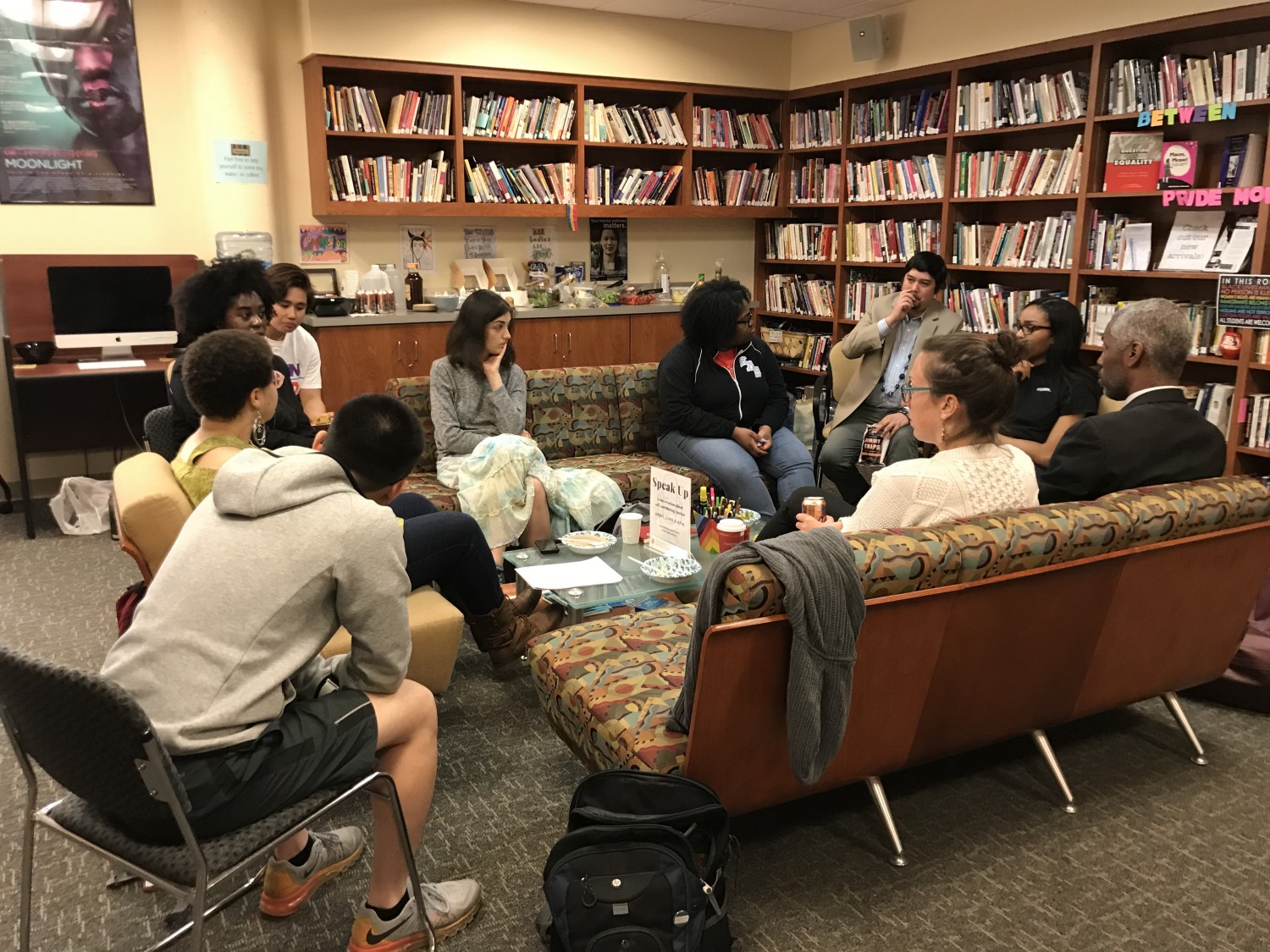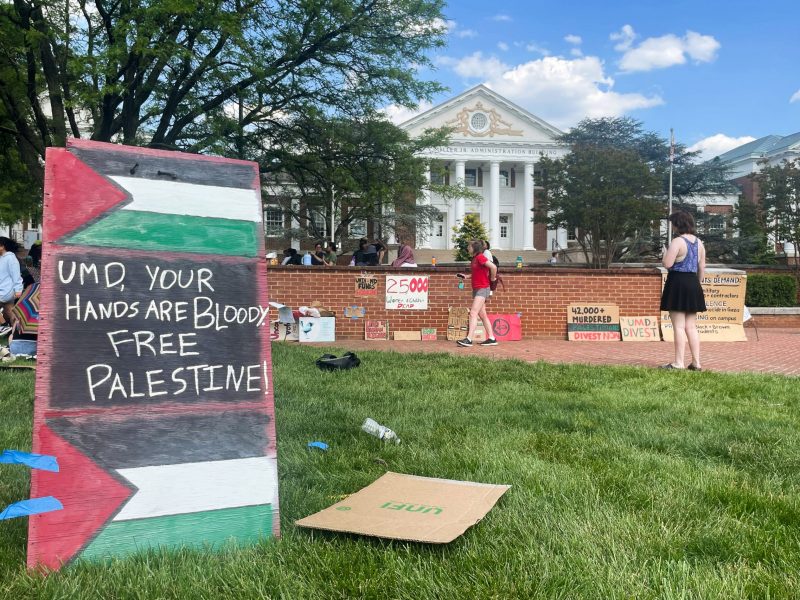By Hannah Himes
For The Diamondback
University of Maryland students sought answers about mental health and self-care techniques Monday at the Mental Health & Self-Care in LGBTQ+ Communities discussion and demonstration.
The event is just one in a series of mental health and self-care discussions and events that the LGBT Equity Center and Counseling Center host each semester, said event organizer Sika Wheeler, an Equity Center coordinator.
“It’s an extension of previous conversations we’ve had and a chance to have some community on campus,” Wheeler said.
About six students and university staff attended the meeting, some looking for free food and others seeking answers to their own mental health dilemmas.
“I saw it on the pride calendar. I was just interested,” said Chelsea Iloanya, a physiology and neurobiology student. The senior said she was interested in discussing mental health issues, including “what types are prevalent and, if you’re dealing with anything, ways that you can manage them.”
About 35 percent of students identifying as sexual minorities were planning suicide and about 25 percent had attempted suicide in the previous year, reported a 2015 CNN survey. Bisexual individuals showed the greatest suicide risk, with just under half of bisexual individuals surveyed considering suicide in the previous year.
“I think mental health and self-care is one of those things that’s sort of become a buzzword. But the sense that I get from people is that they don’t quite know how to integrate it in a meaningful way in their lives,” Wheeler said, adding that it’s important for everyone, especially those in the LGBT community, to practice self-care.
“I think having [solutions] that all you need is yourself, your mind, is really, really important and accessible,” she added.
Wheeler created the event with Counseling Center psychologists Rashanta Bledman and Carlton Green. Green attended the event and added his expertise to the discussion.
“We need relationships that help us feel like we matter,” he said of safe spaces, family and religious institutions.
Green led attendees through some breathwork: guided breathing that aims to strengthen awareness. Exercise and meditation reproduce the dopamine in your brain and turn down the stress hormones in your body, Green said before starting the exercise.
“It’s impossible to clear the mind,” he said. “Meditation is learning about how to train your awareness to where you want it to be.” The exercise was part of the event’s demonstrations that Wheeler intended to help attendees.
“I hope that they take away something specific that they can either start doing in their life and time or maybe more clarification around something that they’re already doing,” she said.
Despite not attending many events, junior biology major Andy Kuo noticed how supportive everyone seemed during the discussion.
“They were talking a lot about the safe zones, and I was thinking ‘Wow, I can definitely feel it,'” he said.



